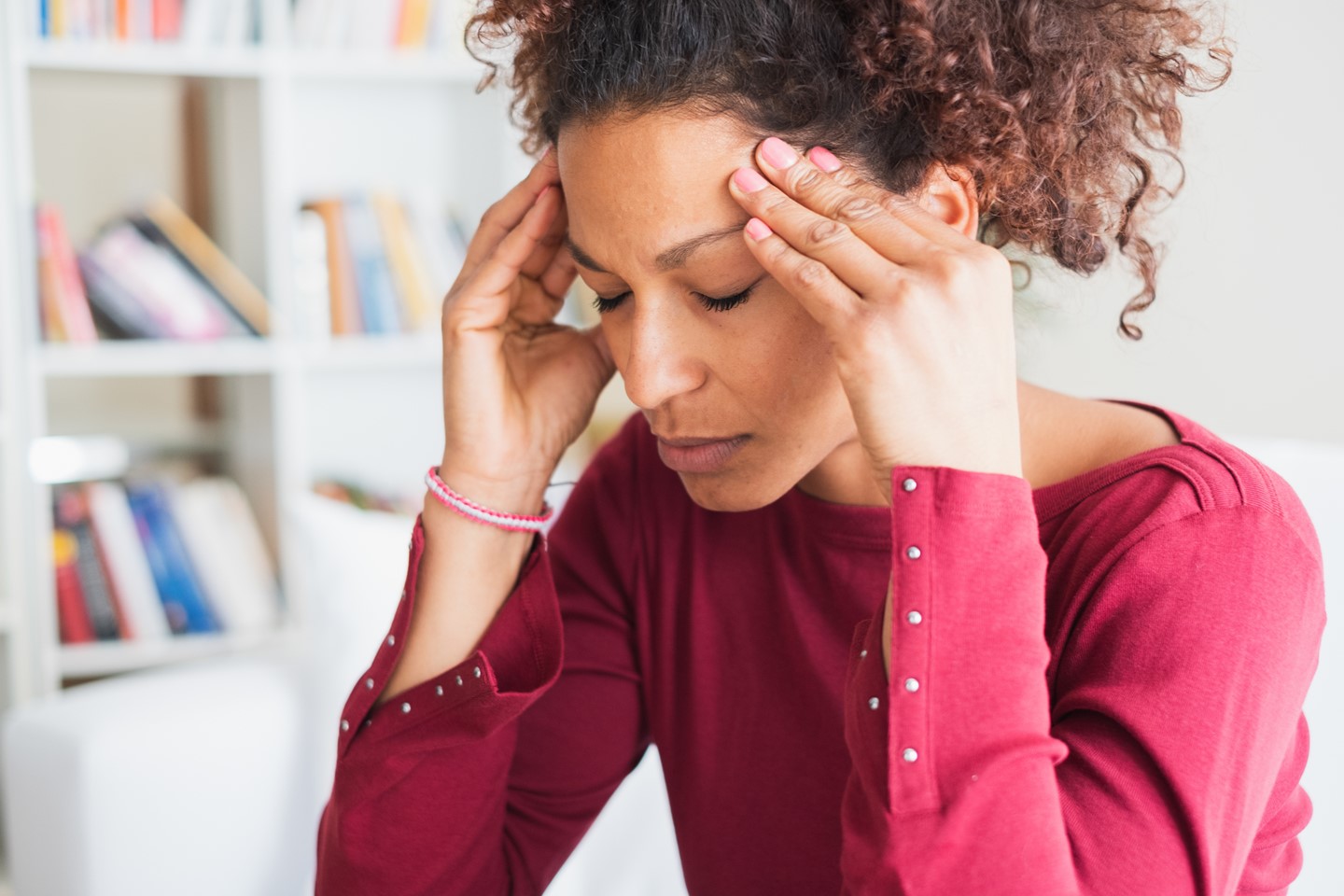Headaches can be irritating and painful, particularly when you experience them long-term without really understanding why. With migraines affecting three times more women than men, headaches can be down to the female hormones, particularly oestrogen. Read on to find out more about hormone headaches and how they could be impacting you, especially if you take a hormonal contraceptive like the pill.
Can the contraceptive pill cause headaches?
Headaches are a common side effect of some contraceptive pills, and this is likely because, as research has shown, headaches and migraines can be linked back to a woman’s hormones. The National Migraine Centre says that around 50% to 60% of women who experience regular migraines can see a pattern between their headaches and their menstrual cycle.
A headache or migraine is most likely to occur in the two days leading up to your period, and then during the first three days of the bleeding. These are sometimes known as menstrual migraines.
Studies have suggested the hormone that’s to blame for an increase in migraines around menstruation is oestrogen. More specifically, it’s a drop in oestrogen levels that may bring hormonal headaches or migraines on. During the menstrual cycle, oestrogen levels fluctuate, but the levels drop significantly as you come to the start of your next cycle (i.e. the first day of your period). This drop can be known as oestrogen withdrawal and has been shown to be a trigger for migraines.
For women who take the combined pill (containing oestrogen), one tablet is taken each day for 21 consecutive days. After this time frame, you will have a week where you don’t take the pill, and this is when you will experience a bleed just like a period. You would then start a new pack of tablets and continue to take those for another 21 days, and the cycle goes on. It’s thought that this seven-day break causes a similar hormonal withdrawal that women who aren’t on contraceptives also experience.
Oestrogen isn’t the only thing that can cause migraines, however. Prostaglandin can also bring on migraines or headaches at the start of a woman’s cycle. This hormone-like lipid compound is at its highest level during the period, especially in women who have very heavy periods, and has been associated with headaches.
Women who take the progestogen-only pill could also experience headaches. It’s generally thought that this is because oestrogen fluctuations will still occur, even though you’re taking a pill that doesn’t contain oestrogen. Headaches are listed as a common side effect of taking Lovima® - a progestogen-only pill. This means that it could affect less than one in 10 women (but more than one in 100 women). The symptoms generally improve over time and may even go away altogether, so keep this in mind if you’re experiencing headaches and have just switched to a new form of contraception.
It’s worth noting that using contraception doesn’t necessarily mean you will get headaches. In fact, some women find that their migraines are less severe when they take the contraceptive pill.
Can coming off the pill cause headaches?
You could get headaches when you come off a contraceptive pill because of the drop in oestrogen. This may especially be the case for women who take the combined pill that contains a mix of progestogen and oestrogen. Such headaches are likely temporary, and it may take some time for your body to adjust.
How to treat headaches caused by the contraceptive pill
If you’re experiencing headaches, either due to menstrual migraines, starting a new contraceptive pill or coming off a pill, you may be looking for some ways to treat them. Below, you can find our suggestions. If the headaches persist, you should seek medical advice from a pharmacist or GP.
Take paracetamol or ibuprofen
Paracetamol or ibuprofen can help to reduce the pain of a headache. Take the tablets as recommended by the manufacturer, making sure not to exceed the suggested dose.
If your headaches persist over a longer period of time, you should seek medical advice to find the cause.
Review your contraceptive choice
If you think your choice of contraception may be contributing to your headaches you should speak to your doctor or pharmacist about the alternative options available.
Find the reason for your headaches
Painkillers, such as paracetamol, can help get rid of headaches, but you may wish to
find the actual cause. Keeping a headache diary for at least three months (or three menstrual cycles) could help you to determine whether they’re caused by your hormones or not. You may even wish to keep a food and drink diary, to track whether certain items are triggering your headaches or migraines. Caffeine can be a culprit, as can alcohol, foods containing artificial sweeteners, items containing tyramine (like red wine and soft cheeses) and foods containing Monosodium glutamate (MSG), including processed meats and Chinese food.
Visit your doctor
If you regularly experience migraines or bad headaches, a doctor may be able to prescribe migraine medication to help ease your symptoms. If you think your contraceptive pill is making the headaches worse, you can speak to your doctor about alternatives.
Sources:
https://www.medicines.org.uk/emc/product/12736/smpc
https://www.nhs.uk/conditions/hormone-headaches/
https://www.nationalmigrainecentre.org.uk/hormones-and-migraine/
https://www.nhs.uk/conditions/headaches/
https://www.nhs.uk/conditions/contraception/combined-contraceptive-pill/
https://www.nhs.uk/conditions/contraception/the-pill-progestogen-only/
https://www.ncbi.nlm.nih.gov/pmc/articles/PMC2938905/
https://www.healthline.com/health/birth-control/birth-control-headaches
https://migrainetrust.org/live-with-migraine/self-management/common-triggers/#page-section-6
